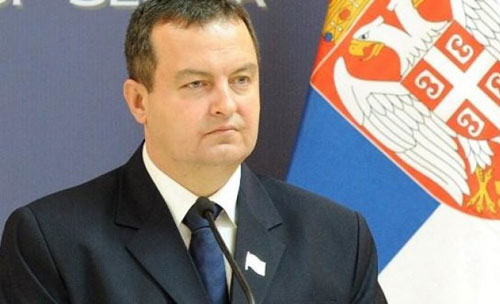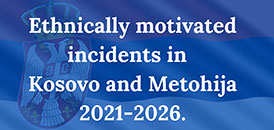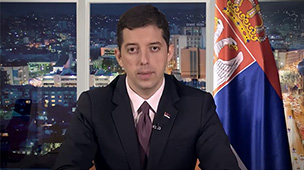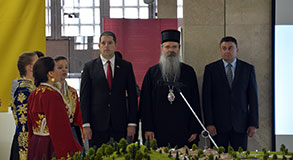FM sends letter about Pristina's UNESCO bid to UN chief
Serbian Minister of Foreign Affairs Ivica Dacic sent a letter to UN Secretary General Ban Ki-moon over the intention of Kosovo to become a member of UNESCO.

In it, he underscored that this would be unacceptable for Serbia because Kosovo cannot be considered a state.
Serbia has not changed its position concerning the status of its southern province although it is faced with requests and efforts by Pristina to get involved in the work of international institutions outside the context of the agreement on regional representation and cooperation, Dacic said in a letter which Tanjug said it saw.
This is unacceptable for Serbia, Dacic underscored and pointed to the latest example embodied in the efforts by Kosovo to become a member of UNESCO.
It is obvious that such a request was filed with the intention of confirming the "statehood" of Kosovo, which oversteps the frameworks of the UNMIK mandate and special representative of the UN secretary general, he noted.
UNMIK cannot interpret this issue in any different way except as abandonment of the principle of status neutrality and reaffirmation on the wider international scale of Kosovo's unilaterally declared independence, the Serbian foreign minister said.
"As a territory, Kosovo is under the administration of the UN in keeping with the valid and binding UNSC Resolution 1244 from 1999 and in this context it cannot be considered a country as subject to international law, and it therefore does not qualify for UNESCO membership," Dacic underscored.
In the letter to Ban, Dacic said that ignoring such a fact would constitute a violation of legal regulations drafted under UN auspices which aim to preserve international peace and stability.
He recalled that since June 1990 to date, a total of 236 churches, monasteries and other facilities owned by the Serbian Orthodox Church, as well as cultural and historical monuments were targeted by attacks in Kosovo, 61 of which has the status of monument of culture and 18 are marked as sites of exceptional importance for the Republic of Serbia.
A total of 174 religious facilities and 33 cultural and historical monuments were destroyed and over 10,000 icons and other objects were stolen.
A total of 5,261 tombstones on 256 Serb cemeteries were destroyed and on over 59 cemeteries not a single tombstone is left intact, Dacic said.
The painful evidence makes me wonder whether the arguments recommend Kosovo for membership in the organization with the mission to help protect and preserve world cultural heritage, Dacic said.
He recalled that the Kosovo parliament is to adopt a law on cultural heritage which will deny private ownership rights to the Orthodox Church over monasteries and churches, with the explanation that these are all property of the "republic of Kosovo."





